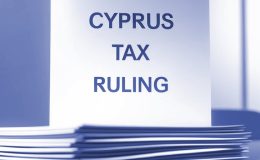Cyprus Controlled Foreign Corporation (CFC) Rules
The Republic of Cyprus is well-known for its attractive tax regime, making it a popular destination for multinational companies seeking tax-efficient structures. In this article, we will explore the CFC rules applicable to Cyprus companies and reference relevant legislation and regulations.
Cyprus Companies: An Overview
Cyprus has an extensive network of double tax treaties, combined with a favorable tax regime, making it a popular jurisdiction for international tax planning. The Cyprus tax system offers several advantages to companies, such as:
- Low corporate tax rate: A flat 12.5% rate on taxable income.
- Exemption from dividend income tax: Dividends received by Cyprus companies from foreign subsidiaries are exempt from taxation, subject to certain conditions.
- No withholding tax on dividends, interest, and royalties paid to non-residents.
- Notional Interest Deduction (NID) on new equity: Companies can claim a tax-deductible notional interest expense on new equity introduced after 2015.
Controlled Foreign Corporation (CFC) Rules
CFC rules were introduced in Cyprus as part of the implementation of the European Union (EU) Anti-Tax Avoidance Directive (ATAD) to tackle aggressive tax planning and base erosion and profit shifting (BEPS) issues. These rules are included in the Cyprus Income Tax Law (ITL) under Article 26A and came into effect on January 1, 2019.
The main purpose of CFC rules is to attribute the undistributed income of a foreign subsidiary (or permanent establishment) to its Cyprus parent company for taxation purposes, provided certain conditions are met. The rules aim to prevent profit shifting to low-tax jurisdictions and ensure that profits are taxed where the economic activity occurs.
Application of CFC Rules
The CFC rules apply to a Cyprus tax resident company (or a Cyprus permanent establishment of a non-resident company) that holds, directly or indirectly, a participation of more than 50% in a foreign subsidiary (or foreign permanent establishment), and:
a. The foreign subsidiary’s tax paid on its profits is lower than 50% of the tax that would have been paid if the subsidiary were a Cyprus tax resident, or b. The foreign subsidiary’s income arises from non-genuine arrangements put in place for the essential purpose of obtaining a tax advantage.
If these conditions are met, the Cyprus company is required to include the undistributed income of the foreign subsidiary in its taxable income.
Non-Genuine Arrangements
A non-genuine arrangement is deemed to exist if the Cyprus company does not have the necessary substance to carry out the significant people functions (SPFs) relevant to the assets and risks associated with the foreign subsidiary’s income. In determining whether a Cyprus company has sufficient substance, factors such as the company’s management, employees, premises, and decision-making processes are considered.
CFC Exemptions
Certain exemptions from CFC rules are available if the foreign subsidiary (or permanent establishment) meets one of the following conditions:
a. Its accounting profits do not exceed €750,000, and its non-trading income does not exceed €75,000, or b. Its accounting profits amount to no more than 10% of its operating costs.
Practical Implications and Compliance
Cyprus companies with foreign subsidiaries must closely monitor their structures to ensure compliance with the CFC rules. This includes assessing the tax residency and substance of their foreign subsidiaries, evaluating the level of control and participation in the subsidiary, and reviewing the tax treatment of the subsidiary’s income in its jurisdiction.
In case the CFC rules apply, the Cyprus parent company must include the undistributed income of the foreign subsidiary in its taxable income and pay the appropriate tax in Cyprus. This requires accurate and timely accounting and reporting to avoid potential penalties for non-compliance.
The introduction of CFC rules in Cyprus as part of the EU ATAD implementation has brought significant changes to the Cyprus tax landscape. These rules aim to prevent profit shifting to low-tax jurisdictions and ensure that profits are taxed where the economic activity occurs. Cyprus companies with foreign subsidiaries must closely monitor their structures and compliance with these rules to avoid potential tax liabilities and penalties.
Foreign CFC Rules Impact on Cyprus Companies Set Up by Non-Cyprus Residents
When non-Cyprus residents establish Cyprus companies, they must consider the potential impact of foreign CFC rules on their structures. Foreign CFC rules may apply if the non-resident owner is located in a country with CFC legislation in place. In such cases, the income of the Cyprus subsidiary may be attributed to the non-resident parent company for tax purposes in the parent company’s jurisdiction.
Countries with CFC Rules
Many countries have implemented CFC rules, including but not limited to:
| No. | Country |
|---|---|
| 1 | United States |
| 2 | United Kingdom |
| 3 | Germany |
| 4 | France |
| 5 | Spain |
| 6 | Italy |
| 7 | Australia |
| 8 | Canada |
| 9 | Japan |
| 10 | Russia |
| 11 | China |
| 12 | India |
| 13 | South Korea |
| 14 | Mexico |
| 15 | Brazil |
| 16 | Argentina |
| 17 | Portugal |
Please note that this list is not exhaustive, and CFC rules may vary significantly between countries. It is crucial to verify the current CFC regulations in the relevant jurisdiction before structuring any international operations.
Impact of Foreign CFC Rules
The impact of foreign CFC rules on Cyprus companies set up by non-Cyprus residents will depend on the specific CFC legislation in the parent company’s jurisdiction. However, some common implications are as follows:
- Substance requirements: To avoid the application of foreign CFC rules, the Cyprus subsidiary may need to demonstrate sufficient substance in terms of its management, employees, premises, and decision-making processes.
- Reporting and documentation: The non-resident parent company may be required to report the income and operations of its Cyprus subsidiary to the tax authorities in its jurisdiction. This may involve additional compliance and reporting requirements.
- Taxation of undistributed income: If the foreign CFC rules apply, the non-resident parent company may be required to include the undistributed income of the Cyprus subsidiary in its taxable income in its jurisdiction. This could lead to additional tax liabilities.
- Reassessment of the group structure: Non-resident owners of Cyprus companies may need to reassess their group structures to minimize the impact of foreign CFC rules. This may involve restructuring the ownership chain, reviewing the business operations, or considering alternative jurisdictions for their subsidiaries.
- Monitoring changes in legislation: Non-Cyprus resident owners of Cyprus companies should stay up-to-date with changes in CFC rules in their jurisdiction, as well as international tax developments (e.g., BEPS, ATAD) that may affect their structures.
Navigating and Avoiding CFC Rules
While it is essential to comply with the Controlled Foreign Corporation (CFC) rules applicable in the relevant jurisdiction, there are certain strategies that can be employed to minimise their impact on international group structures involving Cyprus companies. In this section, we will delve into more detail on key aspects and best practices for navigating and avoiding CFC rules.
- Establishing Substance
Demonstrating adequate substance is crucial for avoiding CFC rules. Ensuring the Cyprus subsidiary meets the necessary substance requirements can help prevent the parent company from being subject to CFC rules in its jurisdiction. Key aspects to consider include:
a. Management and decision-making: The Cyprus company should have local management and directors who have the authority to make strategic decisions related to the business. Board meetings should be held in Cyprus, and minutes should be maintained to document the decision-making process.
b. Employees: The Cyprus subsidiary should employ a sufficient number of qualified staff to manage its operations, particularly in areas such as finance, administration, and sales. Outsourcing some functions may be acceptable, but the core business activities should be performed by the company’s employees.
c. Premises: The Cyprus company should have a physical presence, including office space, equipment, and facilities necessary for carrying out its business activities.
d. Business operations: The Cyprus subsidiary should conduct genuine business activities and not be a mere conduit or shell company. The company’s activities should be consistent with its economic substance and have a legitimate commercial rationale.
- Strategic Ownership Structure
Reviewing and optimising the group ownership structure can be an effective strategy to minimise the impact of CFC rules. Considerations include:
a. Multiple layers of ownership: Introducing intermediate holding companies between the Cyprus subsidiary and the parent company in jurisdictions with more favorable tax treaties or CFC rules can help reduce the CFC risk.
b. Fragmentation of ownership: If possible, consider dividing the ownership of the Cyprus subsidiary among multiple shareholders so that no single shareholder holds more than 50% of the participation, potentially avoiding the application of CFC rules.
- Financing and Capitalisation
Proper financing and capitalization of the Cyprus subsidiary can play a significant role in reducing the risks associated with CFC rules. Factors to consider include:
a. Debt-to-equity ratio: Maintain a balanced debt-to-equity ratio to ensure the Cyprus subsidiary is adequately capitalised and to avoid potential challenges from tax authorities.
b. Transfer pricing: Ensure that intra-group financing arrangements, such as loans and guarantees, comply with the arm’s length principle and transfer pricing regulations in the relevant jurisdictions.
- Profit Distribution Policy
Implementing a consistent profit distribution policy can help mitigate the impact of CFC rules. Aspects to consider include:
a. Dividend policy: Regularly distribute profits from the Cyprus subsidiary to the parent company to reduce the amount of undistributed income subject to CFC rules. This should be aligned with the group’s overall dividend policy and supported by a sound commercial rationale.
b. Retained earnings: If retaining earnings in the Cyprus subsidiary, ensure there is a legitimate business reason for doing so, such as funding future investments or covering operational expenses.
- Monitoring and Compliance
Regular monitoring and compliance activities are essential to ensure adherence to CFC rules and to identify potential risks. Key aspects include:
a. Stay informed: Keep up to date with changes in CFC legislation and relevant tax developments in the parent company’s jurisdiction, as well as international tax initiatives (e.g., BEPS, ATAD).
b. Documentation: Maintain accurate and comprehensive documentation to support the group structure, substance, financing arrangements, and business activities, as this will be crucial in case of tax audits or inquiries.
- Alternative Jurisdictions
In some cases, it may be advantageous to consider alternative jurisdictions for establishing subsidiaries. Factors to consider when evaluating alternative jurisdictions include:
a. Tax treaties: Assess the network of double tax treaties in the alternative jurisdiction to determine whether it offers more favourable tax treatment or reduced exposure to CFC rules.
b. Tax rates: Compare corporate tax rates and withholding tax rates on dividends, interest, and royalties in the alternative jurisdiction to ensure tax efficiency.
c. Substance requirements: Evaluate the substance requirements in the alternative jurisdiction and assess the feasibility of meeting those requirements.
d. Legal and regulatory environment: Consider the stability of the legal and regulatory environment in the alternative jurisdiction, as well as the ease of doing business and the level of confidentiality and data protection.
- Controlled Foreign Partnership (CFP) Rules
In some jurisdictions, CFC rules also extend to Controlled Foreign Partnerships (CFP). When structuring the group’s entities, it is essential to consider the potential impact of CFP rules in addition to CFC rules. This may involve structuring the ownership of the Cyprus subsidiary through a partnership instead of a corporation or using hybrid entities, depending on the specific legislation in the parent company’s jurisdiction.
Our Services
At Chambers & Co, we provide a comprehensive range of services to businesses looking to navigate the complex landscape of CFC rules and international taxation. Our experienced team of lawyers and tax consultants are dedicated to helping clients maintain tax-efficient structures while ensuring compliance with all relevant regulations.
Our services include:
- Tax Planning and Structuring: We help businesses design and implement tax-efficient structures tailored to their specific needs, taking into account relevant CFC rules, substance requirements, and other international tax considerations.
- Substance Advisory: We provide guidance on establishing and maintaining sufficient substance in Cyprus, including advice on local management, employees, premises, and conducting genuine business activities to mitigate the risk of CFC rule application.
- Transfer Pricing Consulting: Our team of experts assists businesses in complying with transfer pricing regulations and the arm’s length principle for intra-group transactions, including loans, guarantees, and other financial arrangements.
- CFC Risk Assessment: We conduct thorough assessments of businesses’ group structures to identify potential exposure to CFC rules and recommend strategies to mitigate these risks.
- Ownership Structure Optimisation: We advise businesses on optimising their ownership structures, including introducing intermediate holding companies, fragmenting ownership, and considering alternative jurisdictions.
- Compliance and Reporting: Our team ensures businesses stay compliant with CFC rules, guiding them through the necessary reporting and documentation requirements in their relevant jurisdictions.
- Monitoring and Updates: We keep clients informed of changes in CFC legislation and relevant tax developments, both domestically and internationally, helping them adapt their structures as needed.
- International Tax Consulting: Our lawyers and tax consultants provide expert advice on various international tax matters, including tax treaties, withholding tax rates, and other cross-border taxation issues.
- Legal Representation: We represent businesses in disputes and negotiations with tax authorities, providing expert legal counsel and support throughout the process.
At Chambers & Co, our primary goal is to provide clients with the highest level of professional service and expertise in the field of CFC rules and international taxation. By partnering with us, businesses can confidently navigate the complexities of these regulations while maximising tax efficiency and minimising potential risks.







